B.Sc. Chemistry (Hons)
Programme Overview
The MIT-WPU’s B.Sc. Chemistry (Hons) is a comprehensive programme, offering a thorough blend of theoretical as well as practical knowledge with exposures in research, so that students can develop a skill set in the field of chemistry. This foundational programme equips graduates to make meaningful contributions to scientific progress and to address global challenges of the modern era.
Students benefit from hands-on experience in advanced laboratories, conducting experiments and analysing data, while the curriculum ensures a deep understanding of chemical theory and mastery of laboratory analysis techniques. The programme emphasises the use of state-of-the-art analytical instruments and methodologies, enabling students to excel in chemical analysis and characterisation.
Graduates emerge as capable professionals, prepared to contribute effectively in organisations, research teams, and the dynamic landscape of scientific discovery.
Major Tracks
- Organic Chemistry
- Polymer Chemistry
- Analytical Chemistry
- Biochemistry
- Inorganic Chemistry
Duration & Fees
Duration
4 Years
Applications Open for 2026
Fee Per Year
₹ 85,000
Scholarship
| Scholarship for AY 2026-27 | 10th Aggregate Score | 12th Aggregate Score |
|---|---|---|
|
Dr. Vishwanath Karad Scholarship |
90 & Above |
85 & Above |
|
MIT-WPU Scholarship I |
88 & Above |
83 & Above |
|
MIT-WPU Scholarship II |
85 & Above |
80 & Above |
Note: Scholarships will be awarded based on the Class 10/SSC and Class 12/HSC score.
Terms & Conditions Apply:
- All Scholarships are awarded on a First Come First Serve basis. All Scholarships are awarded as fee adjustments.
- To continue the scholarship for the entire duration of the programme, a minimum level of the academic score has to be maintained at an 8 CGPA across all semesters, attendance is to be maintained at a minimum of 80 percent, with no live backlogs in any subject/programme and no semester break, and there should be no disciplinary action against the student.
For more detailed information visit our website: https://mitwpu.edu.in/scholarships
Eligibility
Minimum 50% aggregate marks in Class 10+2/ HSC or its equivalent examination in science stream with English subject (Minimum 45% aggregate marks for candidates belonging to the Reserved Category from Maharashtra State).
OR
Minimum 55% aggregate marks in any 3 years Engineering Diploma from State Government approved Institution/ board
Selection Process
Admission will be based on the Personal Interaction (PI) score, conducted by the University according to the prescribed schedule
Programme Highlights
- Comprehensive Industry Integration : The B.Sc. Hons. Chemistry program is carefully designed along the lines of the National Education Policy (NEP) 2020, bringing multidisciplinary approaches with the blends of foundational, major, and elective courses in the appropriate proportions.
- Practical Exposure and Research Emphasis : Hands-on experience with state-of-the-art instruments is complemented by an extensive 6 months of full-time industry internship with prominent companies and research institutions.
- Holistic Development and Global Exposure : The programme goes beyond traditional academics, aiding student development through project-based learning, seminars, MOOCs, and guest lectures by experts from both national and international institutions. Immersion programmes at the national as well as rural levels make students broaden their perspectives as well as enhance global awareness.
- Diverse Scholarship Opportunities : Merit deserves recognition and reward; we believe in providing scholarship opportunities to the tune of 100% based on academic excellence. This ensures that the cause of merit does not go unnoticed. Financial constraints will not come into the way of quality education.
- Robust Industry Connect and Start-up Support : Industry and research organization collaborations would create a dynamic learning environment by providing students with valuable networking opportunities.
- Personalized Mentorship and Career Placement : A mentor-mentee interaction system is the backbone of our student support network, guiding our students through their academic journeys. CIAP facilitates the availability of job opportunities from industries, ensuring smooth integration from academia to the professional world.
Programme Structure
| Semester | Course Type | Course Name/Course Title | Total Credits |
|
I |
University Core |
Effective Communication |
1 |
|
I |
University Core |
Critical Thinking |
1 |
|
I |
University Core |
Environment and Sustainability |
1 |
|
I |
University Core |
Foundations of Peace |
2 |
|
I |
University Core |
Yoga - I |
1 |
|
I |
University Core |
SLDP |
1 |
|
I |
Programme Foundation |
Calculus |
3 |
|
I |
Programme Foundation |
Fundamentals of Physical Chemistry |
3 |
|
I |
Programme Foundation |
Physics |
3 |
|
I |
Programme Foundation |
Physical Chemistry Lab – I |
2 |
|
I |
Programme Major |
Industrial Chemistry |
2 |
| Semester | Course Type | Course Name/Course Title | Total Credits |
|
II |
University Core |
Advanced Excel |
1 |
|
II |
University Core |
Financial Literacy |
1 |
|
II |
University Core |
Yoga - II |
1 |
|
II |
University Core |
Co-creation |
1 |
|
II |
University Core |
Indian Constitution |
1 |
|
II |
University Core |
IKS(General) |
2 |
|
II |
University Core |
Sports |
1 |
|
II |
Programme Foundation |
Atomic structure, Periodicity of elements & Chemical bonding |
3 |
|
II |
Programme Foundation |
Biochemistry |
3 |
|
II |
Programme Foundation |
Biochemistry Lab |
1 |
|
II |
Programme Foundation |
Differential Equations |
3 |
|
II |
Programme Foundation |
Inorganic Chemistry Lab -I |
2 |
| Semester | Course Type | Course Name/Course Title | Total Credits |
|
III |
University Core |
Research Innovation Design Entrepreneurship (RIDE) |
1 |
|
III |
University Core |
Spiritual & Cultural Heritage; Indian Experience |
2 |
|
III |
University Electives |
UE - I |
3 |
|
III |
University Electives |
UE-II |
3 |
|
III |
Programme Capstone Project/Problem Based Learning/Seminar and Internships |
Project Based Learning - I |
1 |
|
III |
Programme Foundation |
Material Chemistry |
3 |
|
III |
Programme Foundation |
Organic & Material Chemistry Lab |
3 |
|
III |
Programme Major |
Synthetic Organic Chemistry |
3 |
|
III |
Programme Major |
Surface and colloidal Chemistry |
2 |
| Semester | Course Type | Course Name/Course Title | Total Credits |
|
IV |
University Electives |
UE-III |
3 |
|
IV |
University Core |
Rural Immersion |
1 |
|
IV |
Programme Capstone Project/Problem Based Learning/Seminar and Internships |
Project Based Learning - II |
1 |
|
IV |
Programme Foundation |
Environmental Chemistry |
3 |
|
IV |
Programme Major |
Advanced Organic Chemistry |
3 |
|
IV |
Programme Major |
Organic Chemistry Lab I |
2 |
|
IV |
Programme Major |
Polymer Chemistry |
3 |
|
IV |
Programme Major |
Polymer Chemistry Lab |
2 |
|
IV |
Programme Major |
Seminar I |
1 |
|
IV |
Programme Foundation |
IKS 2- Indian Metallurgy |
2 |
|
IV |
University Core |
Life Transformation Skills |
1 |
| Semester | Course Type | Course Name/Course Title | Total Credits |
|
V |
University Core |
Managing Conflicts Peacefully: Tools and Techniques |
2 |
|
V |
Programme Capstone Project/Problem Based Learning/Seminar and Internships |
Project Based Learning - III |
1 |
|
V |
Programme Major |
Coordination and Organometallic Chemistry |
3 |
|
V |
Programme Major |
Inorganic Chemistry Lab -II |
2 |
|
V |
Programme Major |
Molecular Spectroscopy |
2 |
|
V |
Programme Major |
Physical Chemistry Lab II |
2 |
|
V |
Programme Electives |
Programme Elective –I |
4 |
|
V |
Programme Capstone Project/Problem Based Learning/Seminar and Internships |
Seminar I |
1 |
|
V |
Programme Capstone Project/Problem Based Learning/Seminar and Internships |
Programming and Problem Solving -I |
3 |
| Semester | Course Type | Course Name/Course Title | Total Credits |
|
VI |
Programme Capstone Project/Problem Based Learning/Seminar and Internships |
Project Based Learning - IV |
1 |
|
VI |
University Core |
National Academic Immersion |
2 |
|
VI |
Programme Major |
Analytical Chemistry |
2 |
|
VI |
Programme Major |
Fundamentals of Computational Chemistry |
2 |
|
VI |
Programme Major |
Organic Spectroscopy |
3 |
|
VI |
Programme Major |
Organic Chemistry Lab II |
2 |
|
VI |
Programme Electives |
Programme Elective – II |
4 |
|
VI |
Programme Capstone Project/Problem Based Learning/Seminar and Internships |
Mini Project |
4 |
| Semester | Course Type | Course Name/Course Title | Total Credits |
|
VII |
Programme Major |
Analytical 1.1/ Organic 2.1/Polymer 3.1 |
4 |
|
VII |
Programme Major |
Analytical 1.2 /Organic 2.2/Polymer 3.2 |
4 |
|
VII |
Programme Major |
Analytical 1.3 /Organic 2.3/Polymer 3.3 |
4 |
|
VII |
Programme Capstone Project/Problem Based Learning/Seminar and Internships |
Research Methodology for Chemistry |
4 |
|
VII |
Programme Electives |
Programme Elective III |
4 |
| Semester | Course Type | Course Name/Course Title | Total Credits |
|
VIII |
Programme Electives |
Programme Elective –IV |
4 |
|
VIII |
Programme Capstone Project/Problem Based Learning/Seminar and Internships |
Internship/Research Project |
14 |
|
VIII |
Programme Capstone Project/Problem Based Learning/Seminar and Internships |
Molecular Modeling and Drug Design |
2 |
| Semester | Program Electives | Course Name/Course Title | Total Credits |
|
V |
Programme Elective - I |
Textile Chemistry |
4 |
|
V |
Programme Elective - I |
Bioorganic Chemistry |
4 |
|
V |
Programme Elective - I |
Specialty Chemicals |
4 |
|
VI |
Programme Elective - II |
Industrial Inorganic Chemistry |
4 |
|
VI |
Programme Elective - II |
Bioinorganic Chemistry |
4 |
|
VI |
Programme Elective - II |
Medicinal Chemistry |
4 |
|
VII |
Programme Elective - III |
Paints and surface coatings |
4 |
|
VII |
Programme Elective - III |
Natural Product Chemistry |
4 |
|
VII |
Programme Elective - III |
Food Packaging Technology |
4 |
|
VIII |
Programme Elective - IV |
Agrochemicals |
4 |
|
VIII |
Programme Elective - IV |
Carbohydrate Chemistry |
4 |
|
VIII |
Programme Elective - IV |
Perfumery and cosmetics |
4 |
Career Prospects
Production Officer
Quality Assurance Officer
Quality Control Officer
Research & Development Chemist
Technical Marketing Officer
Research Assistant
Lab officer
Lab Technician
Forensic Laboratory
Programme Outcomes
- Comprehensive Chemistry Foundation: Students will demonstrate a profound understanding of fundamental concepts in organic, physical, inorganic, analytical, nanotechnology, material, and polymer chemistry, acquired through various theory and laboratory subjects.
- Expertise in Experimental Design and Safety: The programme imparts proficiency in designing experiments utilising advanced instrumentation techniques. Through a blend of practical and theoretical subjects, students become proficient at the knowledge of standard operating procedures and safety regulations that ensures precise and secure chemical handling, fostering a culture of safety awareness.
- Interdisciplinary Application Skills: The students will exhibit the ability to apply their chemistry knowledge in interdisciplinary fields such as material science, chemical biology, biophysics, chemical technology etc.
- Sustainability Integration Competence: Students will integrate sustainability principles into their work, emphasising environmentally friendly practices aligned with the principles of Green Chemistry.
- Specialised Proficiency in Organic, Analytical and Polymer Chemistry: Students will attain specialised expertise in Organic, Analytical and Polymer Chemistry through dedicated theory and laboratory subjects.
- Industry-Ready Professionalism and Practical Skills: By immersing themselves in industry settings and practical experiences, students will develop the practical skills and professionalism required for successful careers in diverse industrial sectors.
Placements & Recruiters
100% Placement Assistance
Top Recruiters
FAQs
Core subjects include Organic Chemistry, Inorganic Chemistry, Physical Chemistry, Analytical Chemistry, and Biochemistry. Students also gain practical laboratory skills and may have electives in areas like environmental or industrial chemistry.
There is high demand for chemistry graduates in pharmaceuticals, biotechnology, environmental agencies, research labs, and education. Both government and private sectors offer diverse opportunities, and further studies can enhance career prospects.
Students gain hands-on experience in state-of-the-art laboratories and participate in a six-month full-time industry internship with leading companies and research institutions.
You will acquire analytical skills, laboratory techniques, problem-solving abilities, and research skills.
Yes, the programme incorporates multidisciplinary learning, project-based modules, national and rural immersion programmes, seminars, MOOCs, and guest lectures by national and international experts.



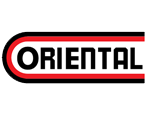




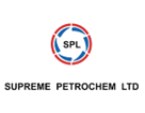

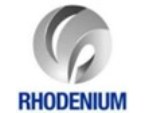
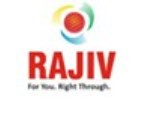
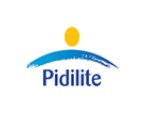
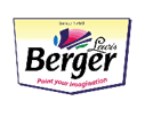
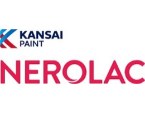
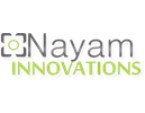
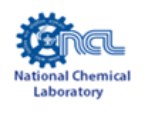

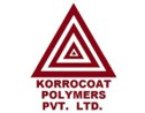
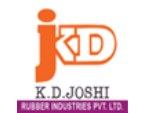
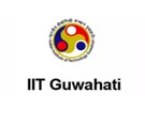
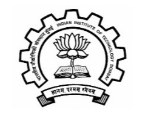
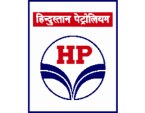
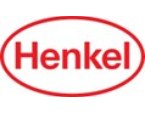
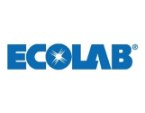
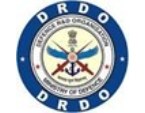
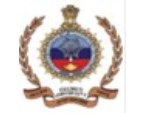
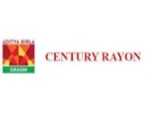

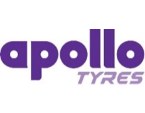





 admissions@mitwpu.edu.in
admissions@mitwpu.edu.in
